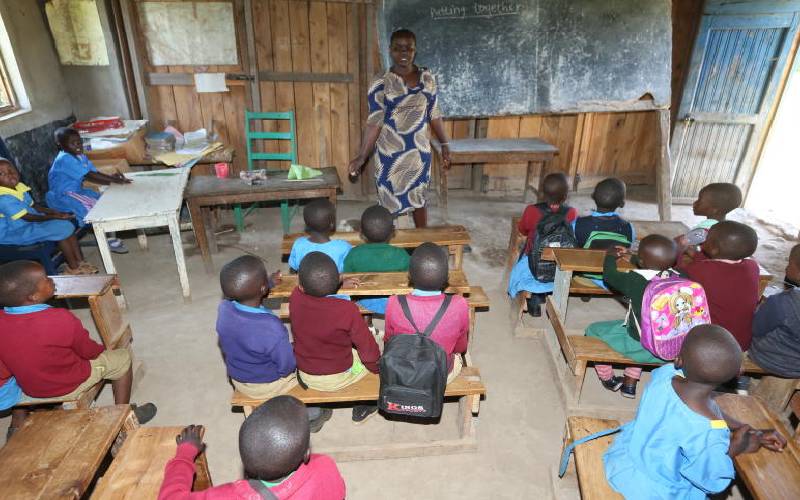×
The Standard e-Paper
Stay Informed, Even Offline
 Makueni has one of the highest Early Childhood Development and Education (ECDE) enrolment in the country with 276,000 children in pre-primary I and II.
Makueni has one of the highest Early Childhood Development and Education (ECDE) enrolment in the country with 276,000 children in pre-primary I and II.
The enrolment has been on the rise since 2013 when Governor Kivutha Kibwana was first elected and the ECDE put in the hands of county governments. This growth in pupil numbers has been in tandem with the recruitment of teachers, support staff and facilities, including classrooms and learning materials. Makueni ECDE centres boast of 929 teachers, among them eight graduates.